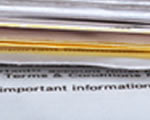 Go to main content
Go to main content
Archive Website of the UK government
Please note that this website has a UK government accesskeys system.
Main menu
Page menu
Money, tax and benefits

Disability Living Allowance

Disability Living Allowance (DLA) is a tax-free benefit for disabled children and adults to help with extra costs you may have because you're disabled. Find out more about Disability Living Allowance, including how much you can get.
Who can get Disability Living Allowance?
Already claiming DLA and want to report a change in your circumstances - find out more
You may get Disability Living Allowance if:
- you have a physical or mental disability, or both
- your disability is severe enough for you to need help caring for yourself or you have walking difficulties, or both
- you are under 65 when you claim
You can get Disability Living Allowance whether or not you work.
It isn't usually affected by any savings or income you may have.
If you're aged 65 or over, you may be able to get Attendance Allowance.
Special rules - if you're terminally ill
If you have a progressive disease and are not expected to live for more than another six months there are special rules. The special rules are to help you get your benefit more quickly and easily.
Medical examinations
You won't usually need a medical examination when you claim Disability Living Allowance. But if you're asked to have one you can find out more from the links below.
Changes to Disability Living Allowance
From 2013 a new Personal Independence Payment will replace Disability Living Allowance for disabled people aged 16 to 64.
Use the following link to find out more about the new benefit, including what will happen if you're currently getting Disability Living Allowance.
How much do you get?
Whether you can get Disability Living Allowance and the amount you get is based on your current needs and circumstances. If your needs or circumstances change, your benefit may increase, decrease or stop.
Disability Living Allowance has two parts called 'components':
- a care component - if you need help looking after yourself or supervision to keep safe
- a mobility component - if you can't walk or need help getting around
Some people will be entitled to get just one component; others may get both.
The care component and mobility component are paid at different rates depending on how your disability affects you.
It’s important that you give the Disability and Carers Service (DCS) accurate information so that you get the right amount. If any of the information you have given changes, then you must tell the DCS. They will then check that you are still receiving the correct amount.
How Disability Living Allowance is paid
All benefits, pensions and allowances are paid into an account. This is the safest, most convenient and efficient method of payment.
Effect on other benefits and entitlements
If you start to get Disability Living Allowance it might increase the amount of other benefits you're entitled to, for example:
- Income Support
- income-related Employment and Support Allowance
- Income-based Jobseeker's Allowance
- Pension Credit
- Housing Benefit
- Council Tax Benefit
- Working Tax Credit
- Child Tax Credit
Disability Living Allowance is normally ignored as income for working out these income-related benefits and tax credits.
Rates and how to claim
Claim straight away - if you delay you may lose benefit.
You can claim online or get a claim pack by:
- phoning the Benefit Enquiry Line
- downloading the form from this website
Find out more in 'Disability Living Allowance - rates and how to claim' below.
Changes in your circumstances
Your entitlement to Disability Living Allowance and the amount you get is based on the information you told the Disability and Carers Service (DCS). If this information changes it is your responsibility to tell the DCS.
If you are not sure what changes you need to tell them about, please read 'Disability Living Allowance – your circumstances'.
Information about Disability Benefits - British Sign Language Version
A set of films has been produced in British Sign Language (BSL) for people who are deaf or hard of hearing. The first four films give you basic information about different benefits. The final one explains how to make a claim if you are eligible.
More useful links
Useful contacts
In this section...
- Attendance Allowance
- Incapacity Benefit
- Direct payments for care and services
- Constant Attendance Allowance
- Disabled Facilities Grants
- Industrial Injuries Disablement Benefit (accidents)
- Industrial Injuries Disablement Benefit (diseases and deafness)
- Medical costs for war pensioners
- War Disablement Pension
- Vaccine Damage Payment
- Severe Disablement Allowance
 Facebook
Facebook Twitter
Twitter StumbleUpon
StumbleUpon Delicious
Delicious Reddit
Reddit